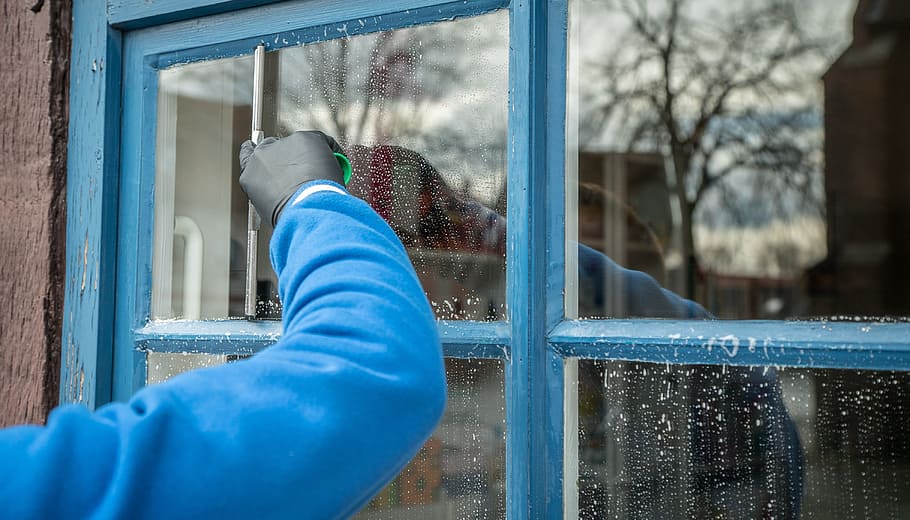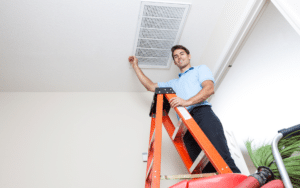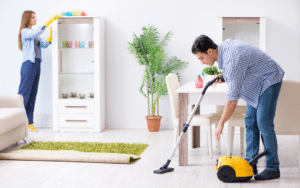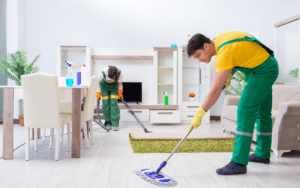At present, there?s only one thing that?s running through everyone?s minds: COVID-19. 2020 has been a whirlwind of a year and even though we are reaching its end, coronavirus still looms large over our head. In such a scenario, everyone focuses on keeping their homes as clean and safe as they can. To ramp up efforts for coronavirus disinfection, everyone has taken to self-cleaning their home.
However, it?s not as simple as wiping down the surfaces in your home. As simple as it may look, there are some dangers involved with self-cleaning your home. Let?s have a look at some of the top reasons why cleaning and disinfecting your home is more dangerous than you think.
Coronavirus Disinfection and Self-Cleaning Dangers
During times like these, abundant cleaning is the need of the hour. However, most of us aren?t aware of the right methods to do so and end up putting ourselves in danger. Without the proper technique and disinformation, even the most common household cleaning products can pose a significant risk for you and your family.
Dangers of Using Bleach
One of the most common household coronavirus disinfection techniques used by homeowners is bleach. Even though it is useful, it poses a lot more threat than most people give it credit.?
For instance, you cannot mix bleach with any other substance other than water. Doing so will lead to the generation of deadly gasses that could prove extremely harmful to you and your family. Another critical factor to note is that bleach will give off fumes when being used.
Hence, if you are not mindful, you will end up inhaling them. Experts suggest that you keep your room well-ventilated while using bleach for coronavirus disinfection.
Similarly, you have to maintain a bleach-to-water ratio for effectiveness. If you go over or under the recommended ratio, you just won?t have the desired effect. Another disadvantage of a homemade bleach solution is that you might end up making a lot, and its effectiveness starts degrading from day one.?
If you do end up making more than you require, you?ll have to think about the right storage method. You can only store it in a glass or plastic container and not a metal one. Storing bleach also poses a problem with the little ones. If you have kids in your home, you?ll always be concerned about having access to it even if you keep it out of their reach.?
With so many issues and caveats, is household bleach for coronavirus disinfection an ideal solution? We?ll let you be the judge of that.
Dangers of Sanitizers and Sprays
Branded pocket disinfectant sprays and sanitizing sprays saw a surge in popularity since the pandemic began, and rightfully so. Everyone wanted to be equipped with the best possible coronavirus disinfection solution that?s readily available to them.
While using bleach takes a lot of effort, these aerosol sprays are handy and useful for the most part. You can spray them on your door handles, tables, countertops, sinks, food, etc. Wait?food??
You heard it right. Many people were using the spray on food and grocery items that they?d just bought. It?s safe to say that it?s not the right thing to do. Such sprays are meant for surfaces only. Despite that, many people continue to misuse it.?
Even though these sprays are meant for surfaces, they aren?t compatible with all surfaces. For instance, these aerosol sprays could damage painted wood, leather, silk, and acrylic surfaces in your home.?
How to Disinfect Your Home
Most people tend to overlook these risks as they are more concerned about coronavirus disinfection. However, is that the right strategy? You cannot ignore the proven dangers of incorrectly using common household cleaners with the hope of you battling a more significant risk. There are many ways to avoid both.?
To begin with, use soap and water to clean your home if you want to self-clean. Not only is it safe for you but it also helps you get rid of any preliminary germs and bacteria that might reside on various surfaces of your home.?
On a more regular basis, you can focus on areas like door handles, knobs, toilets, sinks, faucets, etc. that witness high traffic in your home. Occasionally, you should be deep-cleaning your home in an effort to keep it as safe as possible. The best way to do so is to enlist the help of a professional cleaning service.
Why You Should Hire Professional Cleaning Services for Coronavirus Disinfection
You should take coronavirus disinfection seriously. Now that you?re aware of the dangers of self-cleaning your home, you might be wondering about the viable alternative??
A safe bet in these difficult times is to hire professional cleaning services. Not only do they use hospital-grade disinfectants, but they are also trained in the right way to use them. A professional cleaning service will know of the do?s and donts? of using disinfectants in your home.?
Similarly, it takes a lot of pressure off of you. You are assured of a certain level of professionalism and quality when you work with a cleaning service. Hence, after the coronavirus disinfection has taken place, you are sure that your home is as clean as it can get.?
The bottom line here is that you want to stay safe while minimizing risks. While self-cleaning your home may not seem like a significant risk, you are never too sure if it?s been done the right way. Working with a professional cleaning service ensures that you and your family are safe in your home while you?re social distancing from people and self-cleaning risks.
Fast Maid Cleaning Service has been in the cleaning business since 2009. We offer professional residential and commercial cleaning and maid services. We also offer COVID-19 disinfection services to help keep your environment safe and sound. You can avail our cleaning services in the following locations:




